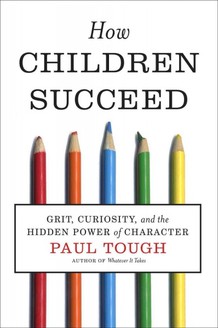I’ve been overwhelmed, mostly in a good way, by the reviews of Peter Singer and Christian Ethics: Beyond Polarization that have come out in the past several months. While generally positive about the book, there is a common criticism which appeared in the following reviews: First Things, American Journal of Bioethics, Catholic Medical Quarterly, and Studies in Christian Ethics. (I understand from CMT’s own Beth Haile that she makes a similar criticism in her review in the just released issue of National Catholic Bioethics Quarterly.)
The criticism goes something like this. While I am perhaps correct in pointing out some superficial similarities between Peter Singer and Catholic teaching when it comes to abortion, I am mistaken in claiming that the disagreement between the two is “narrow.” Peter Wicks, making his case in First Things, says the following:
Similarly, when discussing Singer’s views on abortion, Camosy again finds common ground, noting that both Christian ethicists and Singer deny that there is a fundamental human right to abortion. But this point could also serve as an example of the gulf that separates the two views. The difference between denying the existence of such a right because you deny that there can be a right to kill the innocent and denying that there is a fundamental human right to an abortion because you deny that there is any such thing as a human right may be interesting, but it is hardly narrow.
While I admit that I could have been more clear about what I meant by “narrow”, it could hardly be said that I meant the difference between the two was “unimportant” or “insignificant.” I clearly explain how the narrow disagreement, when run through to its logical conclusion, leads to a serious disagreement in terms of practical conclusions about abortion and infanticide. Furthermore, I spend many, many pages trying to make the complex case that Singer is wrong on the narrow point of the disagreement. Further evidence that I consider it to be serious and important.
By calling the disagreement “narrow”, I’m saying that the disagreement is not “wide.” One might think that two points of view, one which argues for infanticide and the other which wants to protect even the early fetus, must have wide-ranging disagreement in the abortion debate. But this is not the case between Peter Singer and Catholic teaching. The disagreement is deep, but it is deep on only one narrow point–especially relative to all the possible issues about which Singer and the Church could disagree.
There are at least three “families” of reasons which lead to disagreement about abortion. One family, clearly, is about the moral status of the fetus–and this is where the Church and Singer do in fact have their disagreement. But even within this family of reasons there is significant overlap. Both agree that the fetus is a human being. Both agree that rationality is essential for personhood. Both agree that speciesim is unjust. Both agree that there is no significant dividing line (including viability) between the creation of the embryo and birth of the child. (Indeed, both argue that there is a logical connection between abortion and infanticide.) The disagreement is about what counts as a “rational” creature and gets into complex questions about metaphysics. So, even within this family of reasons, Singer and the Church disagree in a narrow (though deep) way.
But another family of reasons to disagree about abortion involve moral duties to the fetus–including the duties to sustain and the duties not to kill. Some argue, most often on the basis of bodily autonomy, that a woman does not have a duty to sustain a fetus with her body–even if we posit that a fetus is a person. Easily the most famous article on abortion ever written, Judith Thomson’s A Defense of Abortion, made precisely this argument. It is an argument, however, that both Peter Singer and the Church reject. Singer argues that if a fetus is a person, there is a duty (all things being equal) not to kill and to sustain the fetus.
The final family of reasons to disagree consider public policy. Some argue that, regardless of how one answers the above questions, we should have a pro-choice public policy. Some believe that a law against abortion would be unenforceable and would do more harm than good. Some argue that the law shouldn’t be in the business of enforcing laws with regard to reproductive matters–especially when it involves women’s bodily autonomy. Some simply invoke moral relativism and claim that while abortion might be wrong for some, it could be right for others, and the law should make space for choice. Both Peter Singer and the Church reject each of these points of view. Indeed, in a remarkable address he gave at the “Open Hearts, Open Minds” conference at Princeton, Singer claimed that Roe v. Wade was bad law, and argued that abortion in the United States should be decided by a legislative process.
So, seen in the context of the many different kinds of disputed questions which arise in the abortion debates, I hope one can see why I think of the debate between Peter Singer and the Church as “narrow.” On the overwhelming majority of disputed topics in the abortion debate, Singer and the Church agree. Their disagreement, while deep and important, is with regard to only a single premise in a very, very complex argument.





You know, sometimes it starts with such a slender thread. It has to start somewhere. That’s how I see it, anyway.
Hi Charlie– Thanks for this post, furthering this very important discussion. I find your three “families” of claims here to be quite helpful in sorting out more precisely grounds for agreement and disagreement. Surely it is true that, in practical terms, there are going to be points where consistent utilitarians and Catholics are going to have common ground. Because this is really the heart of the disagreement here, isn’t it? Both Singer and Catholicism reject the kind of fundamental privileging of AUTONOMY that animates both Roe v Wade and Judith Thompson, and argue instead for forms of reciprocal duties and (even) sacrifice. This is surely common ground that Catholics share with consistent utilitarians – just as they share common ground with Kantian forms of the defense of human rights.
Having said that, however, it’s evident that each will find Catholic commitment to the other problematic. Thus, the more we try to share ground with Singer, the more precarious is our (radical) commitment to the sacredness of the person (and not just on abortion), and the more we try to share ground with the language of rights, the more precarious is our rejection of modern notions of autonomy (hence, Catholics on the right who believe in individualism in economics, and Catholics on the left who believe it on matters like sexuality).
It seems to me this cannot but end up at the question of ultimate teleology (lost in modern ethics, right?), and the necessity of an ecclesial account of the eschatological unity of the human race.
Hi David…thanks for your substantive and helpful thoughts. They echo the school of thought in which you were trained. 🙂
But I wonder…
It just isn’t my experience that working together with utilitarians in pointing out the problems with hyper-autonomy has made me any less committed to the radical sacredness of the person. Indeed, I’ve only grown more sure of this commitment from my engagement with Singer. Can you say more about why you think that, “the more we try to share ground with Singer, the more precarious is our (radical) commitment to the sacredness of the person”? Perhaps a substantive example to back up the claim would be helpful?
Just because I learned it in grad school doesn’t mean it’s wrong 🙂
Your questions are good one. I can imagine two answers to this. One works on the level of your description of experience, which is that the thorough consistency of Singer’s position leads him into certain radical claims (e.g. issues about infanticide) which seem obviously mistaken to you, and hence your commitment to block those implications is strengthened. The second answer is that ultimately your primary interest in this dialogue is practical, and so (as on many ethical issues) the finer points of one’s overall moral theory are not as central. On this second point, I would say that since Christians don’t have a “moral theory” per se – we have Christ and the Church – I learned that in grad school, too! – that it makes sense in church/world contexts to engage in ad hoc ways. Ad hoc does not mean sloppy, as your work demonstrates so well. But the point is that the conversation is not: Singer is a radical utilitarian, we know radical utilitarianism justifies sacrificing the few for the many, therefore we either reject Singer or we reject the sacradeness of the person. The first issue is also important here – give Singer much credit, he actually is willing to draw the tough conclusions, and there is nothing more maddening than trying to dialogue with folks who avoid difficult implications of their own views.
David, you are correct when you state that Christians do not have a “moral theory”, for The Word of God, The Truth of Love became Flesh, and dwelt among us.
“All things came to be through Him…” – The Gospel of John
I suppose you could state that the Line that has been drawn In The Sand is narrow, but that doesn’t change the fact that the difference between Christ’s teaching on respect for the personal and relational Dignity of every son or daughter of a Human Person from the moment of conception, and Peter Singer’s view on The Sanctity of Human Life, is profound.
Sorry, Charlie, you can’t have it both ways. You are claiming you meant “narrow” in the important, significant, profound sense (and I believe you do genuinely feel that way, having read the abortion chapter of your book). But you never should have marketed a book—or a project— if you only meant narrow in the most misleadingly narrow sense.
Mark, with respect, most people who read the work knew what I meant…and did not think that the use of “narrow” was misleading. Furthermore, the book isn’t marketed on the idea that the differences between Singer and Christian Ethics are unimportant; rather, it was marketed (and argued) on the idea that the real and important differences are not nearly as wide-ranging as almost everyone thinks–and this opens the door for interesting conversation and even cooperation.
Charlie—
You, of course, have know way of knowing what “most people” who read your book think, and it’s a bit cheeky to aggrandize that you were very clear to most people, when the whole point of this thread is that a common criticism of your book is, in your view, due to the fact that you were not sufficiently clear. Trying to salvage the project by substituting “not nearly as wide-ranging” for narrow is a distinction without a difference.
If you are stridently pro-life and I would be stridently pro-choice, what does it mean to say that our difference, while important, significant and profound is, no need to worry, not wide-ranging?
Mark, almost all of the people with whom I’ve had discussion…as well as a clear majority of the reviews…did not mention this as a confusion.
If you read the conclusion to the abortion chapter it answers you final question.
Professor Camosy, there is only one difference between the truth that Christ Has Revealed about The Sanctity of Human Life, and Mr.Singer’s view which denies The Sanctity of every Human Life, and that difference is not narrow, it is profound. Perhaps you will be able to make Mr.Singer understand that when you deny the fact that every Human Life has been Sanctified from the moment of conception and thus is worthy of being protected, anything can become permissible.